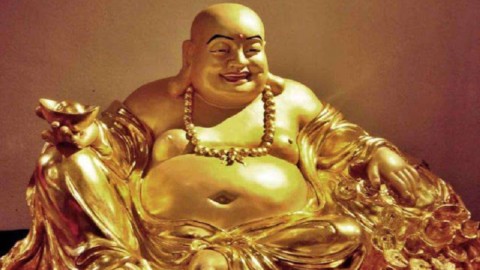This introductory session, organised by the Dwarkadhish Holistic Centre in collaboration with the Centre for Indian Knowledge System at NIT Calicut. Today, we will explore the profound topic of Discriminating Thought, providing a glimpse into the enriching course on the Yoga Sutras.
Guests of Honour:
- Prof. Prasad Krishna, Director of NIT Calicut
- Dr. R. Sridharan, Chairperson of the Centre For Indian Knowledge System, NIT Calicut
- CS Gunjan Kotecha, Non-Executive Director at SkyBright Education Private Limited
- Dr. Gauri Mahulikar, Academic Director at Chinmaya International Foundation
- Prof. Sukanya Sharma, Department of Humanities and Social Sciences, IIT, Guwahati
Index:
- Introduction for Guest of Honour by Reekal Kanabar 0.00 – 3.23
- Prof Prasad Krishna speech 3.25 – 14.45
- Introduction Of Facilitator by Reekal Kanabar 16.47 – 17.49
- Few Key Points by Dhwani Shah 18.21 – 42.49
- Dr. Gauri Mahulikar speech 42.51 – 53.18
- Anil Pandit 53.54 – 56.14
- Understanding the Concept of Discriminating Thought by Dhwani Shah 56.47 – 1.04.33
- Exploring the Connection Between Discriminating Thought and Our Resources by Dhwani Shah 1.04.35 – 1.09.26
- Empowering Ourselves Through the Application of Discriminating Thought by Dhwani Shah 1.09.29 – 1.17.37
- Western Psychology vs. Eastern Psychology by Dhwani Shah 1.17.37 – 1.23.13
- Dr Sridharan’s feedback on the session 1.23.42 – 1.24.26
- Interactive talk with Dhwani Shah, Dr Sridharan and participants 1.24.27 – 1.30.51
- Feedback from CS Gunjan Kotecha 1.31.07 – 1.32.10
- Vote of Thanks by Reekal Kanabar 1.32.13 – 1.32.34
Discriminating Thought:
- Understanding the Concept of Discriminating Thought: Discriminating thought, as articulated in the Yoga Sutras, refers to the ability to distinguish between the transient and the eternal, enabling a practitioner to attain clarity and insight.
- This discernment is crucial for cultivating a focused mind, steering it away from distractions and towards a deeper understanding of one’s true nature.
- This cognitive process is essential for achieving clarity and insight, guiding practitioners towards spiritual growth.
- Exploring the Connection Between Discriminating Thought and Our Resources: According to the Yoga Sutras, discriminating thought allows us to discern between beneficial and detrimental influences, thereby optimising our use of resources for personal and spiritual growth.
- The practice of discriminating thought, as emphasised in the Yoga Sutras, enhances our ability to allocate resources efficiently, ensuring that our actions align with our higher purpose and values.
- Empowering Ourselves Through the Application of Discriminating Thought: The Yoga Sutras emphasise the importance of cultivating discriminating thought to discern between the transient and the eternal, empowering individuals to make balanced decisions.
- By applying the principles of discriminating thought as outlined in the Yoga Sutras, we can effectively navigate life’s challenges and align our actions with our higher purpose.
- Discerning thoughts empower personal and spiritual growth by fostering a focused mind.
- Introspection vs. Self-Remembering or Western Psychology vs. Eastern Psychology: Introspection in Eastern psychology emphasises self-awareness and mindfulness, while Western psychology often focuses on analysing thoughts and behaviours.
- Self-remembering in Eastern traditions involves continuous self-awareness, contrasting with Western approaches that may prioritise cognitive understanding.
- Eastern psychology integrates holistic practices like meditation, whereas Western psychology frequently relies on empirical and clinical methods.











